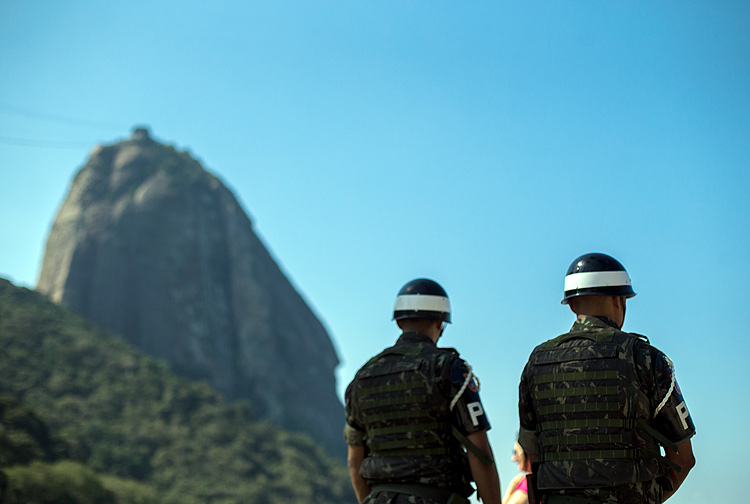Latest Photo Galleries
Brazilian Markets
17h38 Bovespa |
+1,50% | 126.526 |
16h43 Gold |
0,00% | 117 |
17h00 Dollar |
-0,93% | 5,1156 |
16h30 Euro |
+0,49% | 2,65250 |
ADVERTISING
Rio Confronts a Wave of Candidate Deaths
09/06/2016 - 09h21
Advertising
MARCO ANTÔNIO MARTINS
FROM RIO
GABRIEL VASCONCELOS
FOLHA CONTRIBUTOR IN RIO
On a Saturday morning around 9 o'clock, Sérgio de Almeida, 37, got into his car which was parked in front of his house on a residential street in Duque de Caxias (RJ), but didn't even have time to start it. Another vehicle stopped right beside him and shots were fired from inside of it.
Almeida tried to escape through the passenger door but two men - wearing ninja masks and white gloves - leapt out of the car. One was carrying an assault rifle and the other was armed with pistols.
| Ricardo Borges/Folhapress | ||
 |
||
| The brutality of the crimes led the Supreme Electoral Tribunal to request the presence of the Armed Forces. |
Dozens of shots were fired, including at least six that struck the head of Berém do Pilar, the name that he was known by as a city council candidate for the PSL party.
On that 2nd of July he became the 9th political candidate to be murdered in the Baixada Fluiminense region since November 2015.
Five others have been killed since July, bringing to 14 the total number of victims that had been involved in political campaigns in the Baixada in nine months. During the same period in 2012, there was only one such case registered.
According to the Civil Police, six of these crimes were the result of disputes between militiamen. Two others were carried out by extermination groups, who aren't considered to be militiamen by police detective Ginilton Lages, head of the Homicide Division of Baixada. Four deaths were the result of drug trafficking.
Only two of the cases had no connection at all to the political activities of the victims.
The brutality of the crimes led the Supreme Electoral Tribunal to request the presence of the Armed Forces in municipalities in the region and in areas in the western zone of Rio de Janeiro.
The Folha has learned from sources within the police that prosecutors working in the Baixada - a region composed of 12 municipalities with 3,6 million inhabitants - that different militias are supporting different candidates in local Councils. This would mark their first step toward seeking representation in State and Federal Legislatures.
The militias are paramilitary groups made up of civil and military police, both active and retired, fire and rescue service members, military servicemen and civilians. They started forming in Rio in the 1990's and expanded through the western zone and into the Baixada. Today they use violence to intimidate candidates.
The Civil Police deny the theory of an outbreak of political crimes. Their explanation for these cases is that candidates are simply suffering retaliation for their partisan activities.
Among the deaths in the Baixada, the majority are considered to be a reaction of criminal groups against competitors and opponents, like community leaders - so the police categorize them as common crimes.
Translated by LLOYD HARDER



